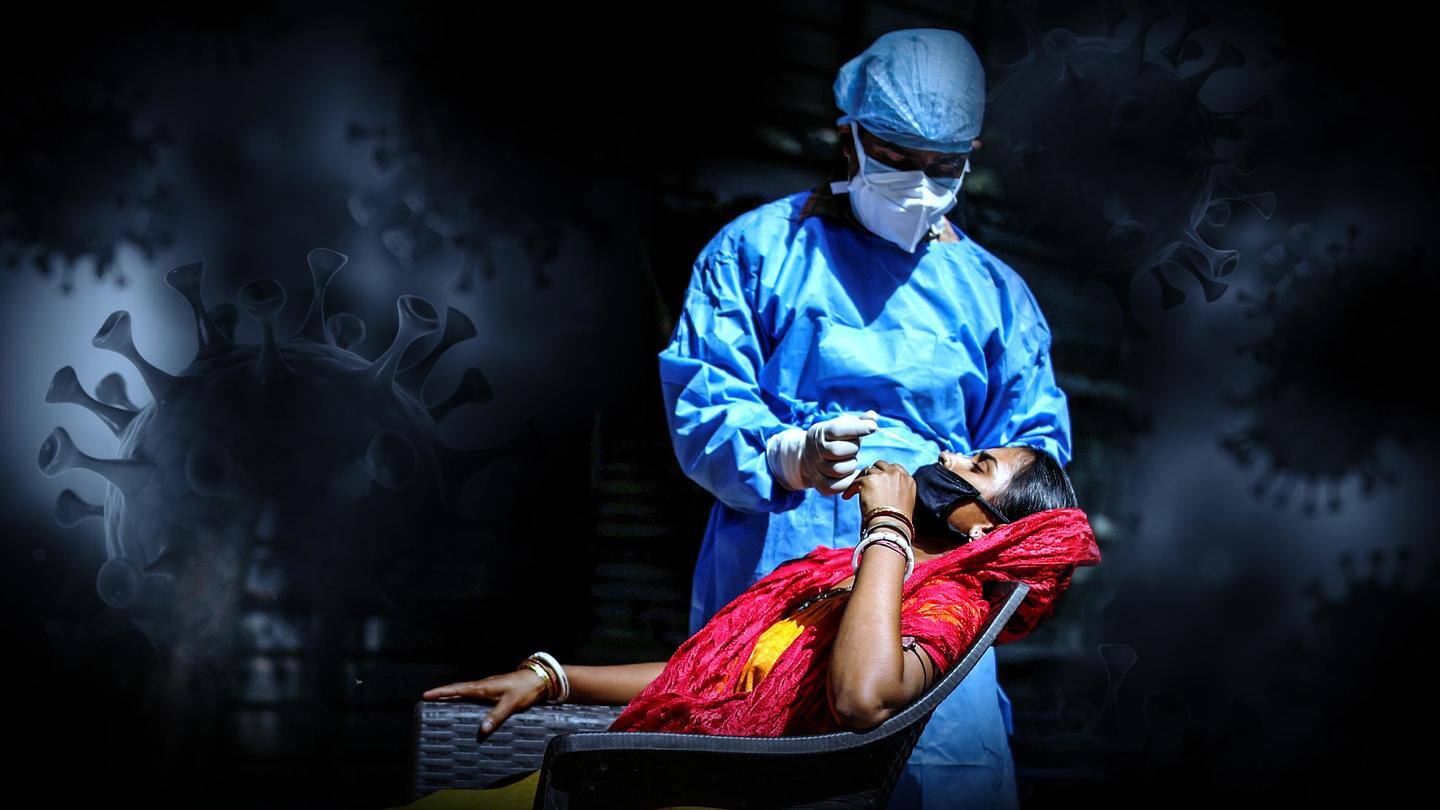
Coronavirus: India's 7-day average COVID-19 cases cross 40,000
What's the story
The seven-day average of COVID-19 cases in India has crossed 40,000 once again.
Infections had declined in India since the second wave hit in April-March, however, the rate of decline had slowed in recent weeks.
The government has repeatedly highlighted this as a cause of concern as experts warn that a third wave of COVID-19 could hit by September.
Here are more details.
Statistics
India's tally crosses 3.16 crore; 4.23 lakh dead
According to the Union Health Ministry, till Saturday morning, India reported a total of 3,16,13,993 COVID-19 cases. The death toll has reached 4,23,810.
So far, 3,07,81,263 patients have recovered, while 4,08,920 cases involve active infections.
In the past 24 hours alone, India recorded 41,649 new infections, 37,291 more discharges, and 593 fresh fatalities.
46,15,18,479 vaccine doses have been administered so far.
Trend
India's second wave peaked on May 7
India's second wave peaked on May 7, when 4.14 lakh single-day cases were reported, over four times the number of cases reported during the first wave in mid-September 2020.
Although infections have declined since the second wave peaked, India crossed the 3 crore-mark on June 23.
India had crossed the 1 crore-mark on December 19, 2020, and the 2 crore-mark on May 4, 2021.
States
Nearly 50% new cases concentrated in Kerala
Maharashtra reported 6,600 new COVID-19 cases along with 7,431 more recoveries.
Kerala, the second worst-hit state after Maharashtra, reported 20,772 new cases and 14,651 discharges.
Meanwhile, the third worst-hit Karnataka added 1,890 new cases and 1,631 recoveries.
Tamil Nadu, the fourth worst-hit state, reported 1,947 new cases and 2,193 recoveries.
Andhra Pradesh reported 2,068 new cases and 2,127 recoveries.
States
Kerala, Maharashtra did least underreporting: ICMR
Data submitted by the Indian Council of Medical Research to Parliament that Kerala and Maharashtra—two of the worst-hit cases—did the least amount of underreporting.
Kerala only missed six cases for every positive case, against a national average of 33, the data showed.
Meanwhile, the underreporting factor for Maharashtra is 12. The figure was the highest for Bihar and Uttar Pradesh: 134 and 100, respectively.
Vaccination
Centre's push for vaccinations among rural, underprivileged populations
The Serum Institute of India (SII)—which is manufacturing Covishield—has struck a deal with the Confederation of Indian Industry (CII) to boost India's vaccination drive in rural areas and small towns.
Separately, the Centre has pushed states and union territories to carry out special vaccination sessions for the poor along with beggars and vagabonds. The state governments may take help from NGOs and other groups.